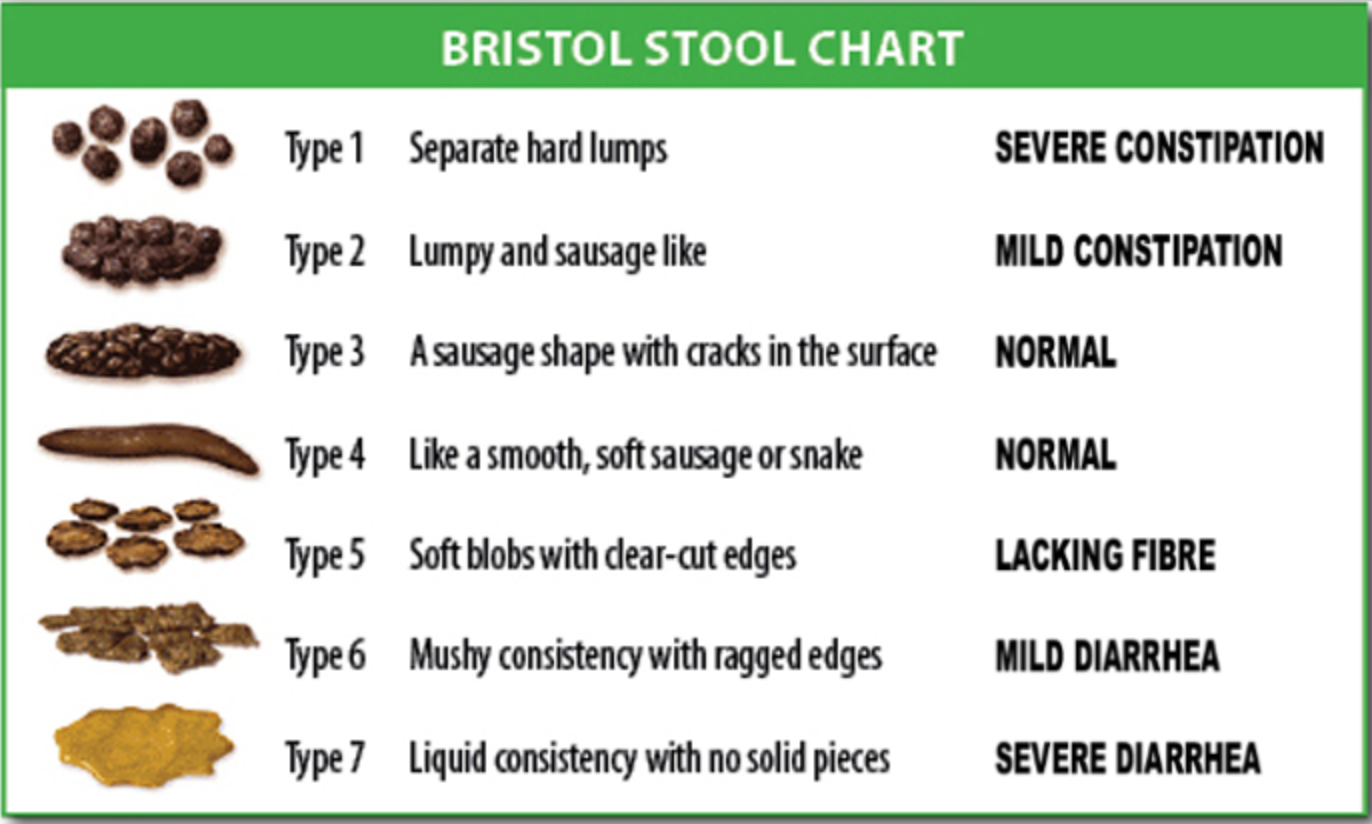We explore 3 cheap, accessible gut health tests you can perform in the comfort of your own home. Costing almost nothing, they can give clues about what's going on inside your gut.
- Your poo says a lot about you
- 1.) Bristol Stool Chart or visual test
- 2.) The gut transit test
- 3.) Stool frequency test
- Take the next step in your gut health journey: the Atlas Microbiome Test
- Article summary
Your poo says a lot about you
Your poo can say much about your digestive health, acting like a message sent directly from the gut. Despite this, many flush away their stools without so much as a glance.
It's commonplace to check your skin, breasts and genitals regularly for changes, but squeamishness remains when it comes to poop.
It pays to take a little time to check the consistency, frequency and appearance of your stools, which can offer clues about your digestive health.
To help you along the way, we've listed three simple DIY gut health tests you can perform in the comfort of your own home. So take a seat (preferably on the toilet), and let's jump in:
==☝Fun fact☝ About 30 per cent of poo is dead bacterial matter, which we sequence using 16S rRNA in the Atlas Microbiome Test.
1.) Bristol Stool Chart or visual test

The Bristol Stool Chart categorises faeces into seven groups according to shape, size and consistency. Dr Ken Heaton developed it at the University Of Bristol in 1997 to help diagnose constipation and diarrhoea.
The Bristol Stool Chart can be great for starting a dialogue about gut health with your GP. Moreover, it's a valuable tool that can offer clues about your digestive health.
Likewise, types 5, 6 and 7 could indicate food intolerances, gastrointestinal infection or poor diet.
Whilst it isn't the most elegant or precise test, the Bristol Stool Chart is free, requires no equipment and can be performed by anyone, anywhere. As such, it's a valuable tool in your gut health arsenal.
You needn't be "stool-gazing" every time you go to the loo, but aim to check your stool once every few weeks, noting any changes in consistency/appearance.
If you spot blood or mucus in your stool, the toilet bowl, or toilet paper, consult your GP.
Whilst blood in your stool is often the result of haemorrhoids; it can be a sign of more severe conditions, such as ulcerative colitis and colorectal cancer.
Remember that blood may not appear red in the toilet bowel and that a black, tarry stool can also indicate blood in your stool. If in doubt, your GP can test your poo to rule out the possibility of bleeding in the GI tract.
☝DID YOU KNOW?☝ One gram of faeces contains over one hundred billion microbes!
2.) The gut transit test

A gut transit test measures how quickly food passes through your GI system, or from table to toilet, as we like to say. The test can suggest whether your digestive tract is operating normally and give clues about your microbiome function.
Numerous factors can influence digestion, including stress, medications, dehydration and a lack of fibre. Transit time varies widely among individuals, with anything between 14 and 70 hours considered "normal".
A gut transit time of anything over 72 hours is considered a sign of constipation, whilst a gut transit time under 10 hours suggests you are not properly digesting nutrients and likely have diarrhoea.
According to a study published in the journal Gut, a colonic transit test is a better measure of microbiome function than either the Bristol Stool Chart or Stool frequency tests.
Longer gut transit times were associated with enrichment in specific bacterial species, such as Akkermansia Muciniphila, Bacteroides spp and Alistipes spp.
Furthermore, gut transit was independently associated with postprandial response (blood sugar levels) and visceral fat levels.
In general, shorter transit times were associated with lower visceral fat and more stable blood sugar levels.
1.) Eat the red beats or dyed food and note the time and date. Make sure you don't eat the marker food for up to a week before the test.
2.) After eating the food, keep your eye out for the distinctive colour when passing a stool, and note the time and date when you see this.
3.) Calculate the time between ingesting the distinct marker and its,ahem, reappearance in the toilet bowl.
☝TOP TIP☝ We recommend performing the test a few times to collect an average score, as this increases the accuracy of the results. Make sure you use the same food type in each test.
3.) Stool frequency test

A stool frequency test involves measuring how often you go to the toilet. Generally speaking, going to the bathroom anywhere between three times a day to three times a week is considered normal, called the "three and three rule".
With that said, it pays to "know your normal"; if you experience a sudden change in bowel habits without any probable cause, flag it up with your health professional, even if you fall within the three and three rule.
☝TOP TIP☝ Think of each test as a puzzle piece; combined, they can offer a clearer picture of your overall digestive health.
Take the next step in your gut health journey with the Atlas Microbiome Test

Whilst all the tests listed in this article are cheap and accessible ways to get an insight into your gut health; they can only tell you so much.
You must use slightly more sophisticated technology to get more in-depth insights into your microbiome and gut health.
With an Atlas Microbiome Test, you can take your gut health to the next level and get a snapshot of your microbiome composition.
- the diversity and balance of your resident gut microbes
- inflammatory potential of your microbiome
- % of probiotics and commensal bacteria in your gut
- risk score for five gastrointestinal disorders, including ulcerative colitis and Crohn's
- microbiome ability to synthesise butyrate
Based on your results, Atlas will send you weekly, personalised food recommendations to help improve your diversity score and boost beneficial microbes in your gut.
You'll also receive a one-to-one consultation with one of our expert nutritionists, who can help you manage digestive issues and optimise your diet for better gut health.
Article summary
- The consistency and appearance of your stool can offer clues about your digestive health, as can the frequency of your bowel movements
- The Bristol Stool Chart is a medical aid categorising poo into seven types, which can be used to diagnose constipation and diarrhoea
- The stool frequency test measures how often you have a bowel movement. Generally speaking, anywhere between three times a day to three times a week is considered normal
- The gut transit test measures how long it takes for food to travel throughout your GI tract. According to one study, it is a better measure of microbiome function than the Bristol Stool Chart or Frequency test. Generally, anywhere between 14-70 hours is considered "normal."
- It is important that you "know your normal" and discuss sudden changes with your GP. If something seems abnormal, trust your gut feeling and raise your concerns with a doctor
- With the Atlas Microbiome Test, you'll discover the diversity and balance of your gut bacteria, two markers of gut health. The test also includes a 1-1 nutritionist consultation and weekly, personalised food recommendations to optimise your gut health
- Get a 40% discount on the Atlas Microbiome Test if you checkout between the 28-31st July!

☝️DISCLAIMER☝This article is for informational purposes only. It is not intended to constitute or be a substitute for professional medical advice, diagnosis, or treatment.




















